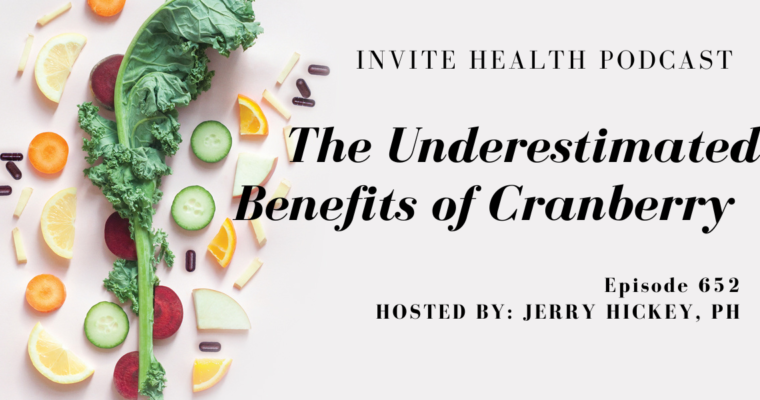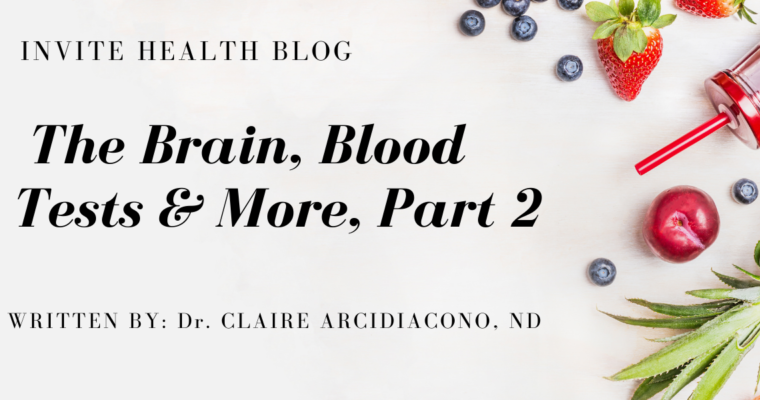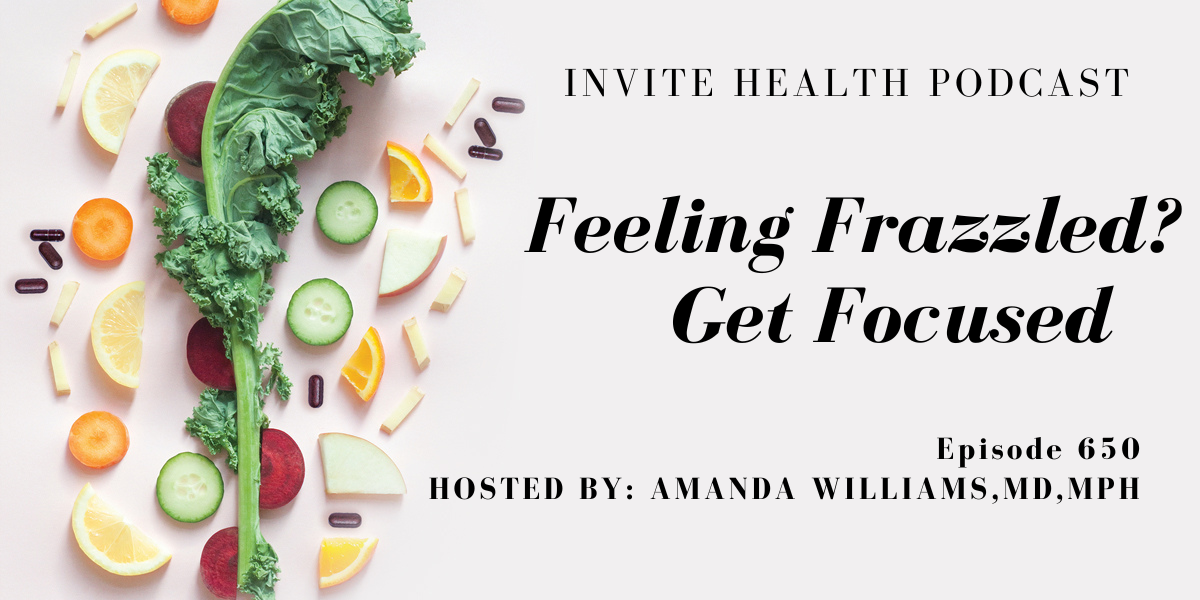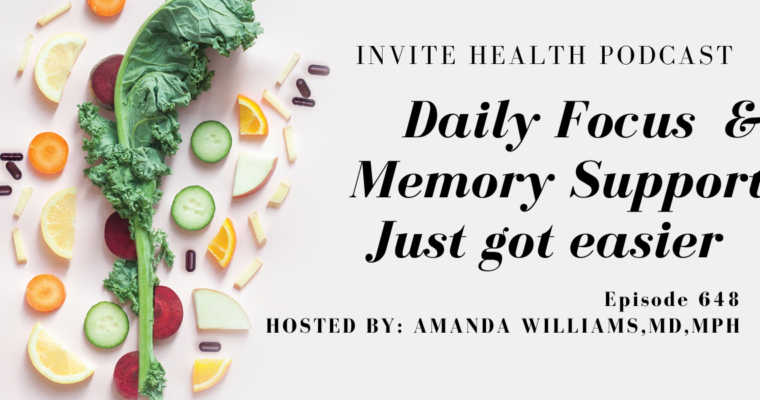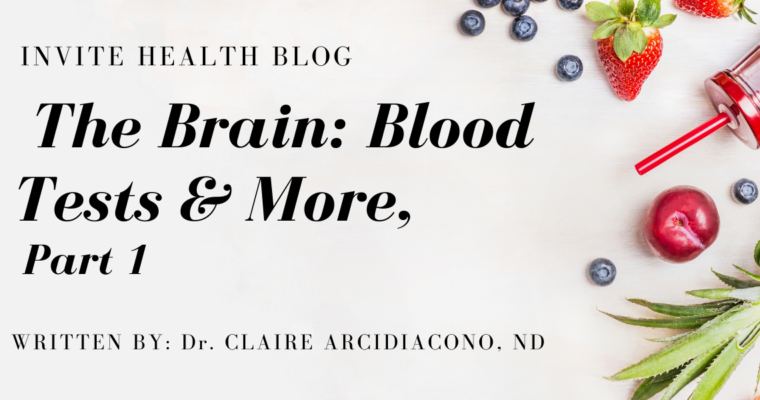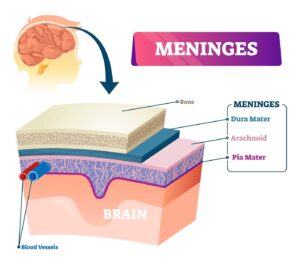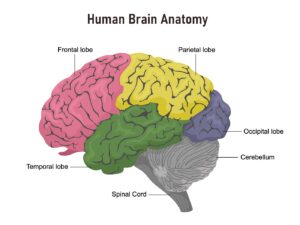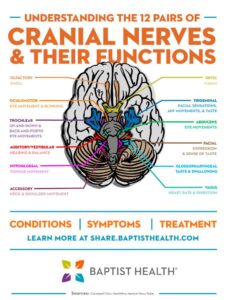Subscribe Today!
Please see below for a complete transcript of this episode.
FEELING FRAZZLED? GET FOCUSED! INVITE HEALTH PODCAST, EPISODE 650
Hosted by Amanda Williams, MD, MPH.

*Intro Music*
InViteⓇ Health Podcast Intro: [00:00:04] Welcome to the InViteⓇ Health Podcast, where our degreed health care professionals are excited to offer you the most important health and wellness information you need to make informed choices about your health. You can learn more about the products discussed in each of these episodes and all that Invite Health has to offer at www.invitehealth.com/podcast. First time customers can use promo code podcast at checkout for an additional 15% off your first purchase. Let’s get started. † [00:00:34]
*Intro Music*
Amanda Williams MD, MPH: [00:00:40] I’ve talked a lot about stress versus burnout in the past and even talked about brain fog. But we know that this is a major problem that so many Americans are dealing with every single day. So, I feel like it’s a topic that needs to be discussed in some more detail. When you look at the statistics of how many Americans are feeling incredibly stressed out and this is affecting all aspects of their life, maybe you get to work, and you feel like you’re not focused or you’re having a hard time completing task. Maybe you’re in school and you’re having a hard time meeting deadlines for certain projects that are due. So, this is an area where we know that through lifestyle modifications, we can make major gains. So, I am Dr. Amanda Williams, scientific director at Invite Health, and they did a survey across the country, and they recognized that well over 80% of workers experience what they consider to be high levels of work-related stress. Well, this is a major issue if you have basically eight out of ten individuals in any office building or in any factory or any place of employment feeling incredibly stressed out that can show what leads us down that path the burnout. Burnout used to always be looked at as something that only applied to folks who were in the health care field. We now recognize that because of our hectic lifestyles that most people are trying to tackle too many things, that stress level is really quite high, and burnout is a real thing. So, I encourage you to go back and listen to the previous podcast on, stress versus burnout so you can recognize the difference. † [00:02:25]
[00:02:26] But we can see how we can have a loss of energy, a loss of focus, a loss of attention. Just an overall sense of not feeling right, feeling as people always say, I feel stressed out. We know that there are many things that we can try to do to decompress ourselves, but not everybody’s into meditation or yoga, but there are other techniques that you can turn to, and I encourage you to find a mindfulness technique that’s going to appeal to you that you can start to apply on a regular basis when you feel those moments of stress so that you can focus on your breathing, perhaps, or take your mind to a different place, even if it’s only for two, three, four or 5 minutes, it can make an astronomical difference, in so many aspects, not only of your mental well-being but for your physical well-being as well. Because we can see the correlation between high levels of stress and cardiovascular disease, and dysregulation of our blood sugar, for example. But in particular, when most people think about stress, they feel like they feel it in their brain, and I think that this is an important takeaway is to recognize that our brain is very power in feeling that low energy or that lack of motivation. This is a clue to you that your brain is screaming for nutrients. Your brain is asking, please feed me. Kind of like if you get that rumble in your stomach and you say, Oh, I’m very hungry. Well, your brain is also hungry for key nutrients in order to be able to offset all of those daily stressors that we come across each and every single day. So, we know the importance of healthy diet and adherence to a Mediterranean diet is certainly the way that we want to proceed forward. We know that those high antioxidant foods certainly can do so much to boost our cognitive performance. † [00:04:17]
DAILY FOCUS & MEMORY SUPPORT JUST GOT EASIER, INVITE HEALTH PODCAST, EPISODE 648>>LISTEN NOW!
[00:04:18] We also recognize that healthy omega three fatty acids are incredibly important to our brain and for the functionality within the brain, a lot of people say, oh, I have ADHD, and we know that in childhood we see higher percentages of young boys and girls who are diagnosed with ADHD or attention deficit hyperactivity disorder. But this is quite common in adults as well. And when you have high percentages of Americans who have been clinically diagnosed as having ADHD, and then you have a whole another group of folks who are self-diagnosed as having ADHD, we have to zero in the real problem. We have to look at the diet. We have to look at our mechanisms that we use in order to decompress our stress. I often say that Americans stay in that lane of sympathetic overdrive and have a difficult time pumping that brake with the parasympathetic. nervous system. Now you see other places around the world where they do a much better job. They take longer vacations, they take breaks during the middle of the day, and they sit down, and they enjoy a meal. They’re not trying to power through their lunch like most Americans, if you even have the time to eat your lunch and when Americans do choose the foods, they’re getting something that’s quick grab and go ultra processed. And we wonder why our brain, when we return from lunch has a very difficult time focusing and why we start to feel sleepy because we’re not nourishing our system in the appropriate way. But we know that there are many things that we can do each and every single day to add to our supplementation routine that can zero in on supporting healthy cognition and allowing us to have better focus and attention. So, I’m going to zero in just on a couple of things today. † [00:06:11]
[00:06:11] Phosphatidylserine folks, Phostidylserine is a very important phospholipid. This is a key fat that helps to support our brain and the way that the brain is reacting and responding each and every single day, even with the release of key neurotransmitters including acetylcholine. We have seen now how the use of phostidylserine supplementation has been shown to be highly effective in both pediatric and adult cases of attention deficit hyperactivity disorder and the Journal of Alternative and Complementary Medicine. They looked at a meta-analysis of multiple clinical trials, zeroing in on the utilization of phostidylserine supplementation and the overall symptoms that people experience with ADHD. And they found through this meta-analysis of these different randomized clinical trials that phostidylserine was effective in reducing symptoms of inattention, especially in children. We have seen clearly the studies done in college students and how this can really help with that stress leading into exams. So big midterm exams or their final exams, and when they started to supplement with phostidylserine, it helped to bring that stress level down. Well, we know it’s doing this in a couple of different ways. One is, it’s very great for HPA axis, so the hypothalamus- pituitary adrenal axis. The other is it is working as this membrane fat to protect our brain cells from dings and dents, as I always like to describe them. But the more stress we have, the more prone our brain cells are to having dings and dents. So, there was a study that was done in the Journal of International Sports Nutrition where they wanted to see if they could replicate the use of phostidylserine in the setting of stress when it came to exercise and performance. So, they were looking at cognitive function before and after acute exercise. They found that when giving college aged individuals phostidylserine, giving them this for two weeks and then having them do an acute physical activity, so exercising and then they assessed their plasma cortisol levels. They were looking at testosterone levels and they could see a significant improvement in their cognitive function, both pre and post workout just through taking phostidylserine for two weeks. So, that’s pretty impressive. So, if you are going to work every day and you feel like you’re exercising your mind and you’re never getting anywhere, maybe phostidylserine is the nutrient you should be turning to. We’ve been able to see how beneficial phostidylserine is in conditions such as depression, as well as anxiety. And we know in the setting of ADHD, oftentimes we have these co-morbid conditions where individuals do feel a lot of anxiety about trying to meet deadlines or trying to finish a task at work. And so, the two often go hand-in-hand, so through the action of phostidylserine, we can help to create more of this balance throughout the system. So Phostidylserine is one thing. † [00:09:42]
ICYMI:BEING SUPPLEMENT SAVVY IN THE SUMMER, INVITE HEALTH PODCAST, EPISODE 649>>LISTEN NOW!
[00:09:42] Another formulation is cerebral care, and the Cerebral care formula contains inositol. Inositol is very important when it comes to cell-to-cell communication in the brain. So now, if your brain is kind of on a hyperactive course and it’s just kind of firing away and it doesn’t know when to stop, that’s a problem because the likelihood that the brain cells have the ability to communicate with each other at that point in time is not real high, they’re just firing away. So, we need them to be able to pause and communicate effectively and say, oh, hey, this is the task we’re trying to do. So, with the use of the cerebral care formulation, we can see where we can gain valuable ground. When it comes to the way that our brain is communicating with the rest of our body, which is very key as well, too. Because remember, if your brain is feeling fatigued, the rest of your body is also going to be feeling that level of fatigue. So, we know that diet and exercise are key. We know that adding in nutrients such as phostidylserine, and then taking it to this whole different advanced level with the addition of the cerebral care powder, which gives you that inositol, it gives you some of that phostidylserine gives you acetyl- L-carnitine to energize up your brain cells, and it gives you CDP choline, which allows you to remember the tasks that you did. Many times, when people get home from work, they go gosh, what are all the things that I did today? So, we want to have very acute short- and long-term memory, so having choline as part of the cerebral care formulation helps to enhance our cognitive function by improving upon memory. So, it’s a really easy way for individuals who do feel that heightened level of stress. We know many Americans, over 80% of Americans who are working say, yeah, I’m stressed to the max. You know, millions of Americans have been diagnosed with ADHD. So, if we want to be effective, we want to have energy, we want to be task oriented, we have to zero in on feeding the brain. And this is a really good one, two combinations of the cerebral care with that phostidylserine. Of course, you want to partner this up with a good regular exercise routine with finding a mindfulness technique that is geared towards you and also adherence to a Mediterranean diet. So those are my tips for all of you Americans who are out there and feeling slightly stressed out and not focused when it comes to your day-to-day work, when it comes to whatever you are trying to accomplish, that should get you to where you want to be. And I want to thank you so much for tuning in to the Invite Health podcast. You won’t find all of our episodes for free wherever you listen to podcasts or by visiting, invitehealth.com/podcast to make sure that you subscribe, and you leave us a review. You can follow us on Facebook, Twitter and Instagram and we will see you next time for another episode of the InViteⓇ Health Podcast. † [00:09:42]
*Exit Music*


